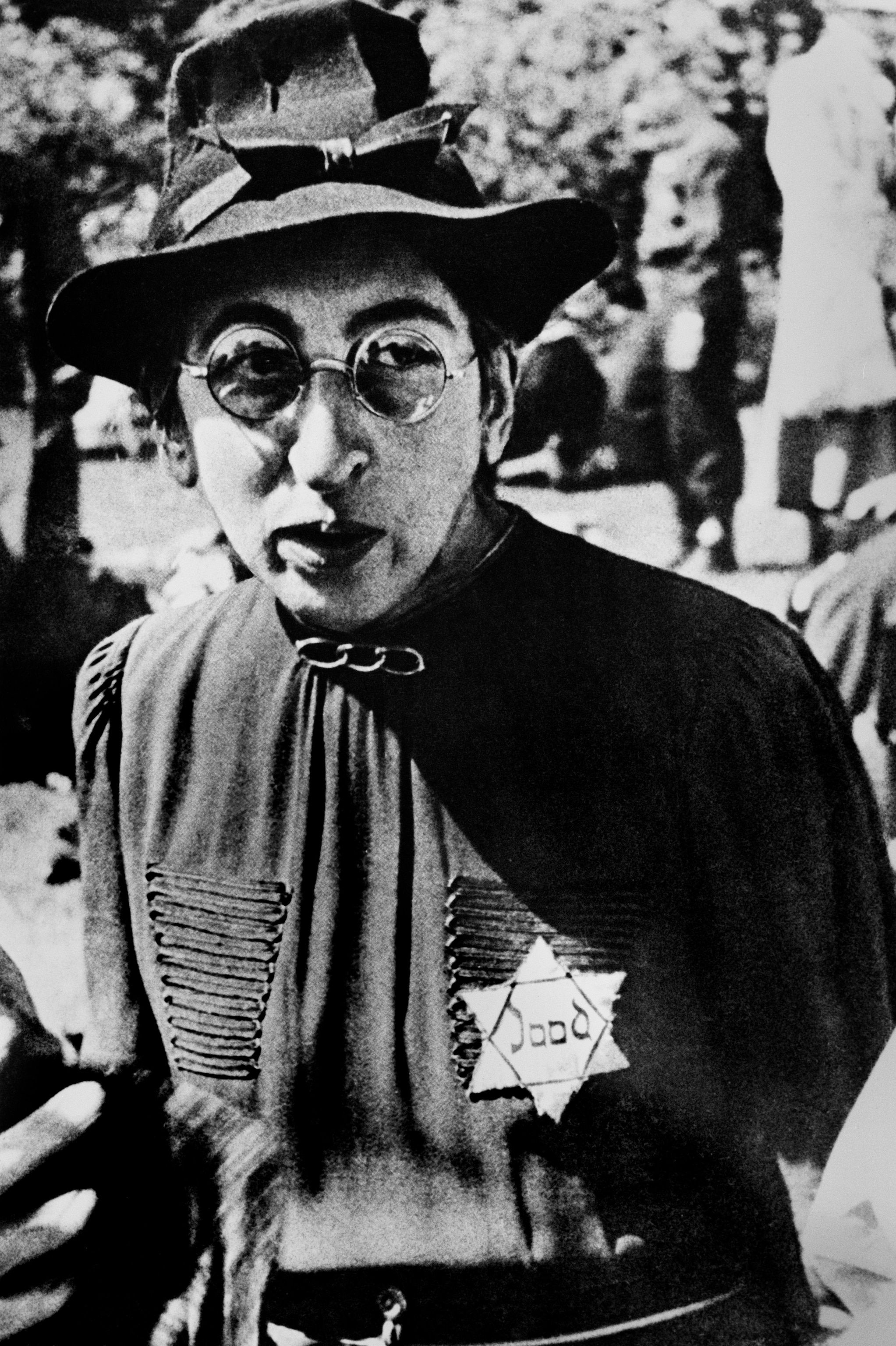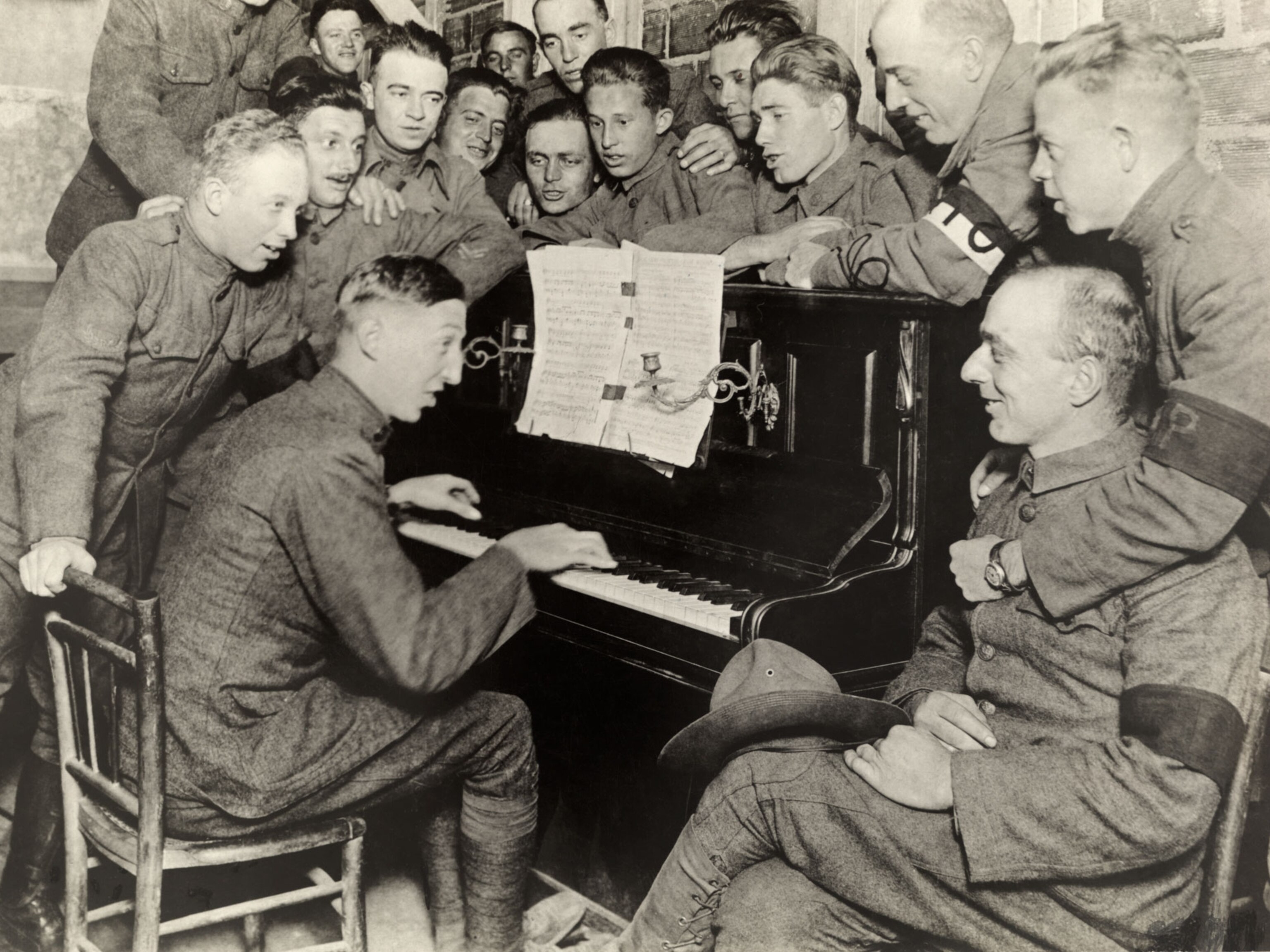How genocide is defined—and why it’s so difficult to prove
The gravest of international crimes was outlawed in the 1940s after the atrocities of the Holocaust. But it took decades to convict anyone of genocide—and the term has since become a political weapon.

United Nations chief Ban Ki-moon regularly spoke to international leaders and powerful diplomats. But in 2014, he faced a very different audience: a stadium filled with 30,000 anguished Rwandans who, two decades earlier, had seen more than 800,000 of their fellow citizens massacred in a hundred days of terror that have since been recognized as a genocide.
“We must not be left to utter the words ‘never again,’ again and again,” said Ban, as survivors screamed and sobbed.
The Rwandan massacre was the first time in history that an international tribunal had convicted anyone of genocide—a crime whose definition was only formalized in the wake of the Holocaust. Russia’s 2022 invasion of Ukraine has rekindled modern debates about the definition and prosecution of genocide. Here’s how the term genocide came about—and why it’s so difficult to prove.



The origin of 'genocide'
Genocide as a legal concept did not come into being until the 1940s. The term originated with Raphael Lemkin, a Polish Jew who worked as a jurist within the emerging field of international law. Lemkin, his biographer Douglas Irvin-Erickson writes, felt “the existing laws of war were inadequate to handle the new forms of political violence afflicting the world.”
His first attempt to write new laws of war came in 1933, 10 months after Adolf Hitler became Germany’s chancellor and began to enact repressive laws targeting German Jews. Lemkin wrote to the League of Nations, an international organization founded to keep peace in the world, proposing they outlaw what he called “barbarity” and “vandalism.” But the proposal failed, and once Hitler’s rise to power extended to Nazi Germany’s seizure of Poland, Lemkin escaped the country.



Eventually, Lemkin ended up in the United States, where he published a 1944 book called Axis Rule in Occupied Europe. In it, he used a new term: genocide. He had coined the term in 1942, combining the Greek word genos (tribe or race) with the Latin term cide (to kill). Though some cultures already had their own words for the concept, like the German Völkermord (deliberately killing a race or people), Lemkin wanted a neologism that could not be claimed by any one group.
The Allies had not yet learned the extent of Hitler’s war crimes. But in 1945, with the liberation of Nazi Germany’s vast network of concentration and death camps, the extent of the Holocaust’s horror became apparent. Lemkin, who lost his parents and 47 other family members to Nazi atrocities pushed for the inclusion of the word in the indictment for the Nuremberg Trials, which exposed the extent and brutality of the Holocaust. He succeeded—and the new word gained steam as the world weighed how to safeguard future generations.
What genocide is—and what it is not
In December 1946, after the trials concluded, the UN General Assembly declared genocide a crime under international law. Two years later, it adopted the Convention on the Prevention and Punishment of the Crime of Genocide, a 1948 agreement that called attempting to destroy a national, ethnic, racial, or religious group in whole or in part “an odious scourge.” Since then, genocide has been outlawed by the international community.


To be convicted of genocide, the accused party—an individual or a state—must not only have demonstrated the intent to commit genocide, but must have done one or more of the following: killed members of the group, caused the group serious bodily or mental harm, deliberately inflicted conditions “calculated to bring about its...destruction,” prevented births among the group, or forcibly transferred children from one group to another. Those charged with genocide must be tried either in international court or where the act of genocide purportedly occurred.
Legally, genocide is distinct from war crimes, which only take place in the context of armed conflict and include “willful killing,” taking hostages, and causing the loss of life or injury. Crimes against humanity, meanwhile, can take place in times of peace and include murder, enslavement, and persecution based on factors like gender, ethnicity or religion.
But while all of these crimes can harm large numbers of people, they only rise to the level of genocide if they target specific groups of people with the intent “to destroy [them], in whole or in part.” Because genocide is so hard to prosecute, the international community tends to charge people with other crimes.



Genocide has its day in court
While genocide had finally been outlawed, it would take decades for the international community to enforce its ban. In 1994, the UN Security Council created an international criminal tribunal in the wake of mass killings committed during the Rwandan Civil War—in which armed militias of Hutu people had slaughtered members of the Tutsi ethnic minority after the April 1994 assassination of Rwandan President Juvénal Habyarimana.
Though the number of victims is still debated, at least 800,000 are thought to have been murdered in just a hundred days. Many of those who survived suffered sexual violence and torture.

Between 1994 and 2016, the tribunal indicted 93 individuals, many of them prestigious leaders within Rwanda, and sentenced 62 of them for the crime of genocide, incitement to genocide, and other crimes.
(In Rwanda, reconciliation is hard won.)
Next came a charge that Serbia had committed genocide in Bosnia and Herzegovina during the Balkan War in the early 1990s with the ethnic cleansing of Bosnian Muslims by Serbian forces. During the Srebrenica Massacre in 1995, members of the Bosnian Serb army and an associated paramilitary group had methodically executed 8,000 Bosniak men and boys.



In the wake of the bloodbath, the UN concluded that it had unwittingly aided mass murder through its reluctance to intervene. Though multiple individuals were convicted of genocide, the UN acquitted Serbia of the crime. However, the court found Serbia didn’t do enough to prevent genocide or punish those who had committed it.
The UN has also been involved in efforts to investigate, prosecute, and try those accused of committing genocide during the Khmer Rouge’s rule of Cambodia between 1975 and 1979. During those four years, the Pol Pot regime allegedly tortured and executed approximately 1.7 million people. The Cambodian government is cooperating with the tribunal but its progress has been halting, and it has only resulted in three convictions.

Why genocide is hard to prove
With the rise of the term “genocide,” scholars began to use it for historic mass atrocities like the Gold Rush-era mass murders of Native Californians by Anglo settlers, China’s sterilization of its Uyghur minority in 2020, and the Ottoman Empire’s slaughter of as many as 1.2 million Armenian Christians in 1915 and 1916.
(Subscriber exclusive: A century later, slaughter still haunts Turkey and Armenia.)
Still, far fewer mass barbarities have been designated genocide under international law. While the law is clear about what constitutes a genocide, its critics argue that the legal standard for genocide is so specific that it is almost never applicable to mass killings or brutal acts perpetrated against a group.
According to the UN, “The intent is most difficult to determine....Cultural destruction does not suffice, nor does an intention to simply disperse a group.”

Technically, the UN can only pursue genocide convictions when a participating nation has not fulfilled its obligation to prosecute the crime on its own. As a result, genocide can be tried in a variety of different venues and by different entities.
Some legal experts argue that the definition of “genocide” is not sufficient to actually prevent people from perpetrating the crime—and that since it’s so hard to prove, prosecutors bring genocide cases too seldom. “With so few convictions to date,” writes University of York criminology professor Rachael Burns, “the international community has much catching up to do.”
Genocide is now considered one of the most heinous of all crimes. But the term can be appropriated by bad actors and used as a way to deflect attention from their own crimes. Since the 1940s, the Carnegie Endowment for International Peace’s Matthew Kupfer and Thomas de Waal wrote in 2014, accusations of genocide have been misused as a “weapon of political rhetoric” by entities like the Soviet Union.

As Kupfer and Thomas de Waal wrote, the word “genocide” has, ironically, become “unmoored from its original legal formulation”—and has itself become a weapon of war.
Determining genocide in Ukraine
Today, many in the international community—including Ukrainian President Volodymyr Zelenskyy and U.S. President Joe Biden—have accused Russian President Vladimir Putin of genocide during the 2022 invasion of Ukraine. “It has become clearer and clearer that Putin is trying to wipe out the idea of even...being able to be Ukrainian,” Biden said on April 12, NPR reported.
(The tangled history that connects—and divides—Russia and Ukraine.)
Putin, meanwhile, has deflected those allegations, and the International Court of Justice has yet to make a ruling on whether Russia’s invasion of Ukraine will be counted among the handful of conflicts that have risen to the legal definition of genocide.




_4x3.jpg)


